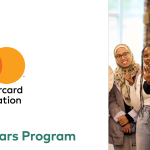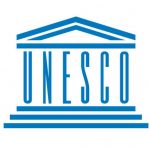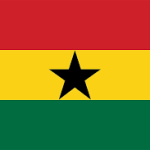Vivacious Chidinma Udechukwu is a second-year Master’s student in Women, Gender, and Sexuality Studies at the University of Cincinnati. She’s also a graduate assistant at the University of Cincinnati Women’s Center, and is the president of the School’s Women’s Gender Sexuality student organization. As a representative in the Graduate Student Government, her research focuses on the experience of African and Nigerian immigrant mothers in the United States.
This personal narrative is based on a recent interview with Chidinma. AfterSchoolAfrica has verified her background and the following has been edited for length and clarity.
- Before moving to the US, Chidinma prepared for at least 2 years. In this tell all, she narrates ALL she did within this waiting period, one of which includes building relationships with mentors. More in the narration below
- Chidinma also reveals extensively how she navigated the visa process, some of which included having her DS-160 form reviewed by a professional and conducting mock interviews.
- Upon arriving the US, Chidinma adapted to a new academic environment, including weekly assignments and discussion-based learning, as well as cultural differences like a greater emphasis on independence. She explains some cultural differences between Nigeria and the US.
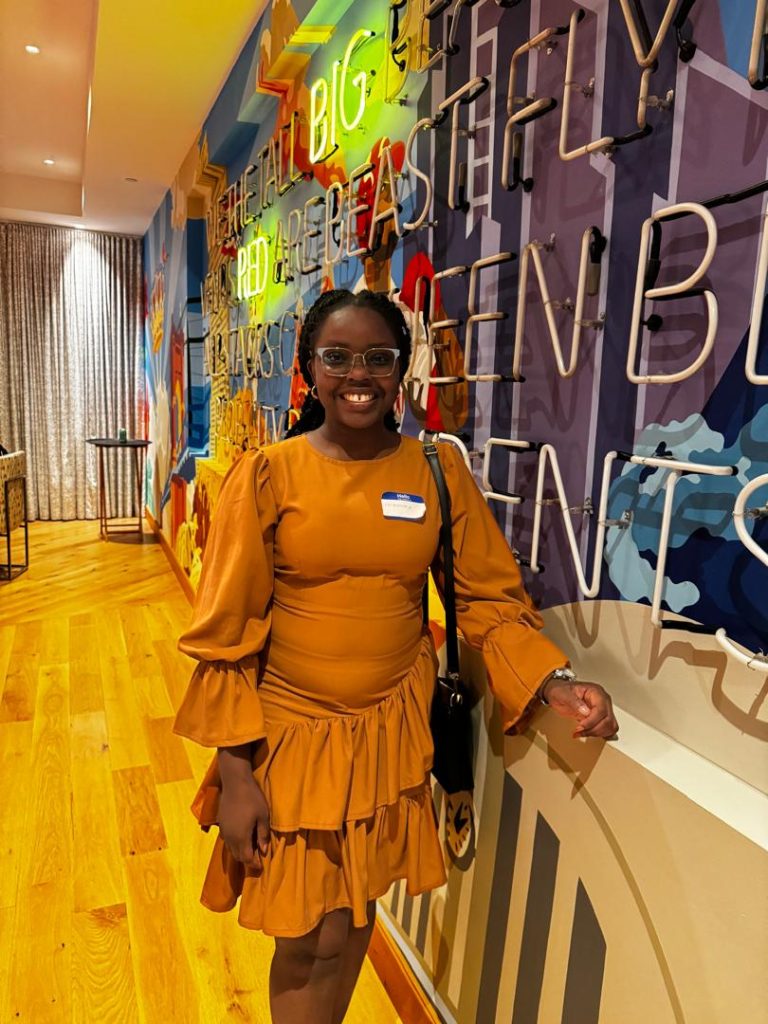
Table of Contents
How I began my preparation for the USA
Moving to the USA involves preparation, and it comes with a lot of planning, a lot of research, and a lot of intentionality because most of the journey depends on you. People can guide you. People can tell you, “Oh, this is the best way to do it.” But the bulk of it kind of still falls on you—the responsibility, I think that’s a better word. The responsibility still falls on you to do everything. So, I’ll say my journey was one where I was privileged to be mentored by the right set of mentors, and I mean mentors from undergraduate days in my school.
I attended the University of Nigeria, Nsukka. I had mentors who were intentional about my growth and who were interested in seeing that I get the best education beyond the undergraduate level. Then I also had friends and seniors who had graduated and had gone through the same route. I built that relationship with them.
I started the process intentionally, like two years before I came to the US. So, even while I was an undergrad, I had the idea of, “Oh, I want to do a graduate program. I want to travel abroad for my graduate program.” But I started working intentionally towards that right from undergrad. Between my graduation period and 2021 and when I traveled, it’s two years, but really, it took 5 years of preparation.
My experience and setbacks while applying to the University of Cincinnati
When it comes to challenges, there were major challenges and there were minor challenges. One of the minor challenges was the fact that just right after I graduated, I misplaced my laptop. All through my application period, I was using my phone. It was that bad. I didn’t have a laptop when I was ready to start the process for, like, one year. So that’s why I said the bulk of the work has to do with you. It was a challenge because you have to do a lot of research for schools. But I was very resilient because I knew I had a vision in front of me and wanted to pursue it. I think another challenge I had was discipline. It’s not easy to sit for hours and hours on your phone or laptop solely for research. So the discipline sometimes wasn’t there.
Additionally, one of the major challenges I faced was finances. Graduate school applications are very financially demanding. “Finances is, you know,” they say in Africa, “you spend money to get money.” This led me to research more for fully funded opportunities.
My Journey Through the Visa Interview Process: How I Prepared
A lot of people are excited when they get their admission, but trust me, that’s just the initial stage. The hottest phase is getting your visa approved. A lot of people forget that they also need to prepare for the visa interview. But really, with good preparation, you can scale your visa interview.
When I say preparation, I mean prepare your documents. So there are processes like you need to pay for a service fee, you need to pay for a visa fee, and you need to get a visa interview date. Those are processes that can be very, very tedious.
For the visa interview in itself, there are two things I always advise: Make sure that your document is called DS-160. (The DS-160, Online Nonimmigrant Visa Application form, is for temporary travel to the United States. It’s also used for F-1 student visas. Make sure that your DS-160 is reviewed by a professional. This should be someone who has a success story with visa applications because a lot of people just give random people.
For example, on your DS-160, they are going to ask you, “What do you do?” You can’t just say, “I work in a bank.”. That’s where your visa interview stops for you because you are going back home. You have to give detailed information. You should note that your DS-160 is the mirror they see before they see you. Through it, the interviewer has profiled who you are, your educational trajectory, your work experience, and your family. Additionally, they even go as far as asking for your social media link. For me, I use my LinkedIn because my LinkedIn is more professional.
On my DS-160 form, I wrote about my work experience and my education. I also wrote about how I had a 4.1 GPA and all the volunteering work for non-governmental organizations across Nigeria that I have been doing.
Then the second one is where you have to build that confidence. Well, fortunately for me, I’m very extroverted. I can speak to the camera. I’m very confident. But the truth is, even with your confidence, you are meeting somebody who can, in two minutes, determine the trajectory of your life. So you do not want to miss it. This is why the mock interview is very essential, because it builds your confidence. I know people, for example, who say that their visa interview was the first time they had a close interview or contact with a person from another country. You can imagine how frightening that can be, especially if this person can determine your entry into their country for the next phase of your life.
Also, there are questions and you need to know questions like, “What do you do?” “Why are you going to the US?” “Why did you choose this school?” “What will you be doing after your program?” These are things that you need to have prepared.
Adapting to a New Environment: My Cultural and Academic Journey in a Foreign Country
One of the cultural shocks for me is the weekly assignment. Why would I be doing assignments every week? Every week? That was a real culture shock because, where I’m coming from, assignments aren’t an every-week thing. So that was one culture shock.
Another shock is how they teach here. At the graduate level in the US, everybody in that class is the lecturer. Everybody is the professor. So it means that you have to come to class prepared. So before the semester resumes, we have sites where our course materials are uploaded for you to read. You are expected to have read everything and come up with discussion questions or things that you want to just counter in class. So you’re coming to class not to listen but to share the knowledge you have gotten from the reading. And I think that was a culture shock, as you can not make excuses.
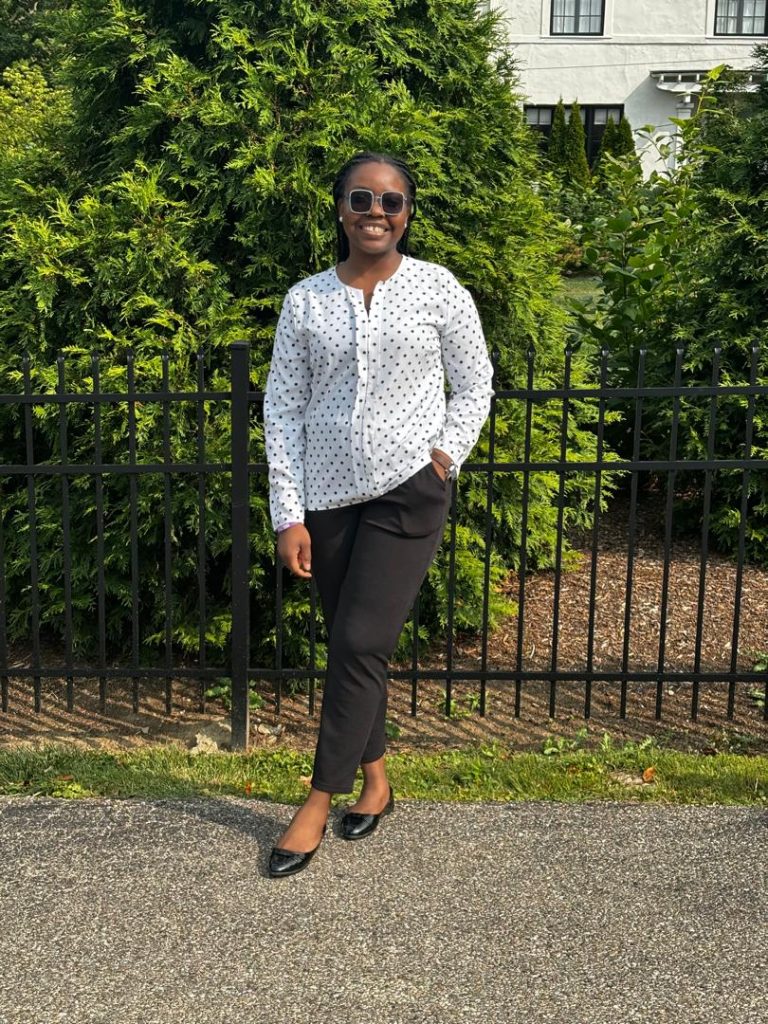
And I think another academic shock that was for me was the fact that you could call your lecturer by their first name. I was shocked. I always thought, ‘where I’m coming from, you can not try this’, as respect is a big deal in my home country. That was a big shock for me.
Culturally, what shocked me is how lonely this place can be. Trust me, it can be very lonely. You know how community plays a huge role in most African countries. However, here, you can have a neighbor, and you will never speak to the person.
Once you come to the US, you will be hit with a lot of cultural shocks, but you don’t have any option but to adjust. For example, I am an extrovert who loves to hang out and go to events. But here you need to learn to be your own entertainment. I have learned how to live independently.
Socially and emotionally, I’ve learned that life is busy. People connect based on appointments or special occasions. Everyone is pursuing their own goals. I have friends I only talk to during long vacations because we’re all so busy during the school year. It’s different from how things might be in Nigeria, where a lack of contact might be seen as a sign of conflict. Here, everyone is busy. I’ve learned to be more self-reliant and content with my own company.
“Scholarship is Not Free Money”: Understanding the Realities Behind Financial Aid
I want to give out this disclaimer: Scholarships aren’t free money. A scholarship covers your tuition but you have to work in exchange for that. I don’t know if that is clear to most young Africans.
You also get a stipend, which is like a salary you get for working over a period of time. The US law says that as an international student, you can’t work more than 20 hours a week. Therefore, you either become a teaching assistant, meaning that you’re assigned to a professor and you’re teaching a class. Or you can work as a research assistant. to do research for lecturers working on papers.
You know, you can’t earn so much money from any on-campus jobs. You can only use the money to pay for your basic needs like house rent, food, and groceries. So that’s why I said a scholarship is not free money. It’s an exchange for working hours. But the working hours are also building you.
How I manage my time and financial life
Over here in the USA, you have to learn time management. For example, I go to the grocery store once a month. That is how intentional I am because I don’t have that time to be gallivanting about. You don’t have that time. So you learn time management, as you don’t have a choice, because the truth is, you don’t even have time. So the one you have, you have to manage it well, things like that. That also changed me mentally.
Furthermore, financially, I have learned to be very prudent with my spending. I’ve always been a prudent person, but right now, I prioritize my finances. I know where my money is going. I know what I spend my money on. Your stipend is just an allowance to help you live every month because here we pay bills every month, so you cannot jump and eat everything you want like that.
Watch the full interview here:
Documents I used to get my fully funded scholarship
So, about full funding: what are the most important documents for a fully funded scholarship? Well, there are a lot of documents needed. First, you need your transcript. I say this first because many schools, especially in Nigeria, have issues releasing transcripts, even after graduation, and I’ve seen people miss admission opportunities because of transcript delays. So, your transcript is required.
Then, check if you need to take the GRE/GMAT for your course or an English proficiency test. These exams are necessary to test your seriousness, yet, I’ll advise people to reach out to their school’s graduate coordinator to see if they can be waived. For example, I took the IELTS for my English proficiency and got a good score of 8.0 on my first attempt. But I didn’t use it in the end because it was waived. If you’re from English-speaking African countries like Nigeria or Ghana, English proficiency is often waived, so ask them. The GRE requirement depends on the school and department, so please ask them.
Other documents you need: your statement of purpose (which talks about who you are, your research experience, and what you want to do). Additionally, you need your letters of recommendation. I always advise people, if you’re still in school, please build relationships with your faculty and lecturers. They’re the ones who write recommendation letters for you. I know people who are struggling to get letters because they didn’t connect with any faculty while in school. Please build relationships with faculty because they can attest to your ability to go to school and excel.
Then, writing samples—writing samples can be anything. For me, during my time, I used my undergraduate project. So if you’ve done an undergraduate project, you can use that as your writing sample. Basically, the purpose of a writing sample is just to show that you can do research, that you have good writing skills, and that you have strong analytical skills.
Now, apart from these, some departments or schools might ask for specific things like a personal statement, diversity statement, or other essays. But those are things you can navigate separately.
The major documents that are very essential if you want to get a fully funded scholarship are:
- Recommendation Letter
- Statement of Purpose
- Writing Sample
- Transcript
And like I always say, make sure you ask ahead of time before applying. Confirm that they give full funding to international students. That’s very important.
My advice to students who have a low CGPA
I get this question a lot. One way to balance out a low CGPA is by having other experiences—things like
- Volunteer work
- Community involvement
- Work experience
- Certifications
These things help boost your profile. Also, always explain why you had a low CGPA. Maybe it was due to financial struggles, family issues, or health challenges—whatever it was, just make sure you state it clearly.
But beyond that, show how you’re making up for it. You can do that through work experience, research, or even publications—maybe writing an article, publishing a paper, or something similar.
So these are other ways to actually improve your chances. I’ve seen people with 2:2 and even third-class degrees get fully funded scholarships here in the U.S. So your case is not an exception—you can get it.
Life as an International Student in the USA in Summary
Living here has many benefits. It teaches discipline and resilience. You can’t give up easily; challenges will arise and test you. You have to stand your ground and commit to following the rules and doing things the right way.
I’ve also learned the importance of asking questions. People are willing to help if you just ask. I used to try to figure everything out myself, but that’s not possible in a new country. There are systems and policies I still don’t know about. It’s essential to ask authorities, long-time residents, or citizens for help. These are some of the key things that have helped me adapt and thrive here.



